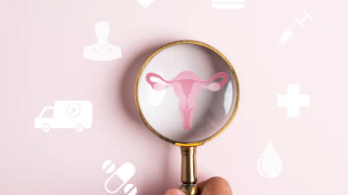
How Female Hormones Impact Thyroid Health and What You Can Do About It
Thyroid health is essential for maintaining energy, metabolism, and overall well-being. For women, however, thyroid disorders are more common, affecting 70-90% of those diagnosed with thyroid problems. The connection between thyroid health and female hormones is one of the main reasons for this higher prevalence. If you’ve been struggling with unexplained fatigue, brain fog, or weight gain, your thyroid might be impacted by a hormonal imbalance.
The Connection Between Female Hormones and Thyroid Health
Your thyroid produces hormones that help regulate many important bodily functions, including metabolism, energy, and even mood. But thyroid function can be disrupted by an imbalance in female hormones—especially estrogen and progesterone. Women with hormonal issues, such as irregular periods or conditions like PCOS, are more likely to develop hypothyroidism (an underactive thyroid).
The key to understanding this link is that every cell in the body has receptors that are designed to bind with specific hormones. For thyroid hormones (T3 and T4) to work effectively, they must attach to these receptors. However, estrogen—the primary female hormone—shares a similar structure with thyroid hormones. This means that when estrogen levels are high, estrogen can "block" thyroid hormones from attaching to their receptors, preventing them from working properly.
This explains why some people with normal thyroid hormone levels can still experience symptoms of hypothyroidism, such as fatigue, weight gain, or brain fog. Even though your thyroid numbers may look fine on a blood test, your body might not be able to use those hormones properly.
Estrogen Dominance and its Effect on Thyroid Function
When estrogen levels are too high, they can reduce the effectiveness of thyroid hormones. This leads to lower oxygen levels in your cells, which can make it harder for your brain and body to function well. The result? You might feel tired, mentally foggy, or struggle with poor concentration.
Estrogen also affects the liver, which is crucial for converting thyroid hormone. Your liver’s job is to turn T4 (the inactive form of thyroid hormone) into T3 (the active form). However, when estrogen levels are elevated, the liver has a harder time making this conversion, which means your body gets less of the active thyroid hormone it needs. This can further worsen thyroid symptoms and contribute to hormone imbalance.
Progesterone: A Key Hormone for Thyroid Health
To help balance out the effects of estrogen, it’s essential to increase progesterone levels. Progesterone helps to "block" estrogen from binding to thyroid hormone receptors, allowing your thyroid hormones to do their job more effectively. Progesterone also plays a crucial role in overall hormonal balance and can reduce many of the negative symptoms that arise from thyroid dysfunction.
By increasing progesterone, you can help restore the proper balance between estrogen and thyroid hormones, improving both your metabolic health and mental clarity. Progesterone is a natural way to support your thyroid, especially for women dealing with estrogen dominance.
Natural Ways to Support Thyroid Health and Balance Female Hormones
If you suspect your thyroid is being impacted by hormonal imbalance, there are several ways you can support both your thyroid and overall hormone health:
-
Increase Progesterone: You can talk to your doctor about natural progesterone supplements or lifestyle changes that can help balance estrogen and progesterone levels.
-
Maintain Healthy Estrogen Levels: Eating a balanced diet, exercising regularly, and managing stress can help prevent estrogen dominance and support thyroid function.
-
Thyroid-Friendly Diet: Certain nutrients like iodine, selenium, and zinc are vital for healthy thyroid function. Incorporating foods like seaweed, Brazil nuts, and pumpkin seeds can support your thyroid health naturally.
-
Reduce Toxins: Avoiding chemicals and toxins (such as those found in plastics and personal care products) can help support hormone balance and thyroid health.
-
Consult with a Healthcare Professional: If you're struggling with symptoms like fatigue, weight gain, or brain fog, it's essential to consult with a healthcare provider who can assess both your thyroid and hormonal health.
Why Thyroid and Hormonal Balance Matters
Thyroid function and female hormones are deeply intertwined. If your thyroid isn’t working properly due to estrogen dominance, you might experience symptoms like fatigue, weight changes, and mood swings, even if your thyroid blood tests appear normal. The key to feeling your best lies in balancing your hormones and supporting thyroid health.
By understanding how estrogen, progesterone, and thyroid hormones interact, women can take a more holistic approach to managing their health. Addressing both thyroid function and hormonal balance is essential for improving energy levels, mental clarity, and overall well-being.

